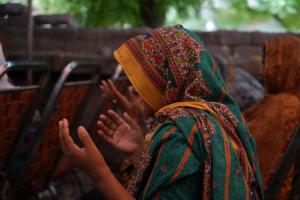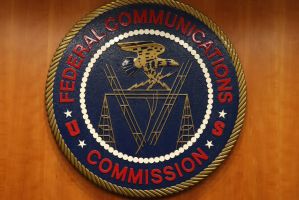Episcopal diocese rejects 'misinformation' amid claims it failed to enforce 'safe church' policies

An Episcopal diocese in California is defending itself amid accusations that it's failing to properly enforce policies meant to protect its churches from sexual predators.
The Rt. Rev. Lucinda Ashby, bishop of the Episcopal Diocese of El Camino Real, sent an email newsletter addressing what she labeled "odd accusations and the spread of misinformation about safety in our parishes, our diocese, and your bishop's commitment to that safety."
"This type of suspicion may arise when a person becomes afraid or feels disconnected from what we are about," Ashby wrote. "We want to ensure that our community members receive accurate information about The Diocese of El Camino Real and The Episcopal Church."
At issue is an allegation leveled against the diocese last month that it failed to properly enforce its safety policies when a sex offender attempted to join the volunteers at Holy Family Episcopal Church of San Jose.
"I want to assure you of my ongoing commitment to having all our communities be places of safety and security where God's people can promote God's mission and ministry in the world," Ashby said.
"We strive to keep our communities as safe havens for people to gather to live into the teachings of the apostles, share in the breaking of bread, and pray together."
Ashby explained that the trustees board voted to contract with Church HR in fall 2022 to help the diocese stay up to date on state law and other guidelines regarding "safe working environments."
Last year, according to Ashby, the diocese "devoted an entire year to ensuring that all our clergy and lay leaders were informed and complied with the expectation, both legal and pastoral, that our communities be places of safety."
"To that end, all leaders were required to undergo background checks and be fingerprinted via Live Scan, a process required by the Department of Justice," she continued.
"Additionally, the Office of the Bishop paid for any out-of-pocket expenses for retired clergy to undergo Live Scan, and the records for non-parochial clergy are held at the Office of the Bishop."
Ashby said that the "safe church" standards of the diocese are "more expansive than" state law and that they "quickly implemented" California's Workplace Violence Prevention Policy earlier this year.
Anglican Watch, an advocacy group centered on combatting abuse within churches, first leveled the accusations against the diocese. In response to the bishop's newsletter, the organization "stands by its reporting and reiterates that both the Diocese and Ashby failed to act appropriately."
"At issue is the Diocese's claim that the sex offender was not in a position of leadership within the parish; the individual in question was in charge of the church's livestreaming and had keys to the church," stated Anglican Watch. "While one might quibble about whether being in charge of live streaming counts as 'leadership,' there are several indisputable issues."
Anglican Watch first reported last month that El Camino Real Diocese mishandled a Title IV disciplinary complaint against the pastor of Holy Family Episcopal, who was accused of failing to enforce the safe church guidelines at the church properly.
The watchdog claimed that rector Rev. Ruth Casipit-Paguio "ignored Safe Church requirements for eight years" and "didn't bother to run background checks on church staff and volunteers during that time, a violation of diocesan policy." Those actions, the group believes, could have led to a "known pedophile listed on a state sex offender registry" attempting to get involved with the parish.
Since the individual had keys to the building, the organization maintains that it gave him an "opportunity to be alone in the building with children and other vulnerable populations."
The watchdog says the diocese failed to notify parents once it learned a sex offender was involved with the parish and doesn't appear to have contacted the police about the person as required by law. The group contends that when registered sex offenders emerge on the scene in churches, it can often mean they are "testing the waters."
Anglican Watch also cited "unconfirmed reports" that the whistleblower who made these accusations public is being retaliated against, claiming that, if true, Ashby's "conduct is practically and ethically wrong."
When The Christian Post had reached out to the diocese earlier this month for a response, a spokesperson said that because of "the sensitivity of the issue, we are unable to provide comments on Title IV or pastoral concerns."





























